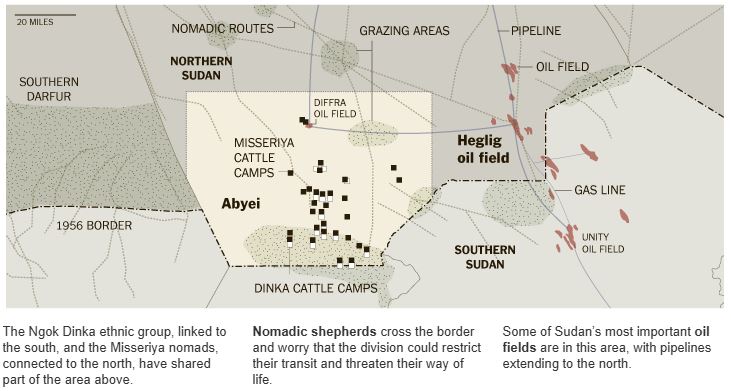A senior UN official told the Security Council on Wednesday that the war in Sudan and political uncertainty in South Sudan have stalled progress in political dialogue on the final status of Abyei and border issues.
Martha Ama Akyaa Pobee, Assistant Secretary-General for Africa in the Departments of Political and Peacebuilding Affairs and Peace Operations, briefed the Security Council and members urged greater support to be lent to the United Nations Interim Security Force for Abyei (UNISFA) in fulfilling its mandate, ahead of its expiration on 14 November.
“The war in Sudan continues to have a profound impact on the security, economic, and humanitarian situations in both Sudan and South Sudan, including in the Abyei box,” reported Ama, briefing the Council on the implementation of resolution 2046 (2012), as well as providing an update on developments in Abyei and UNISFA, including its support to the Joint Border Verification and Monitoring Mechanism.
Outlining recent developments, she noted that insecurity had led to disruptions in oil production and exports in South Sudan, worsening its fraught financial situation. On the humanitarian front, hundreds of thousands of refugees have fled the fighting in Sudan and crossed into South Sudan, where they—like the South Sudanese—faced dire conditions, with inadequate access to clean water, food, and health services.
Meanwhile, in the Abyei box, she noted a continued proliferation of small arms and heavy weaponry, with South Sudanese officials reporting a 21 October incursion of a group of Rapid Support Forces combatants, who looted Aman-Aguak and Mijak counties.
The movement of armed groups is worsening the fragile security situation in South Sudan and Abyei, particularly with respect to pre-existing tensions between the Twic Mayardit and Ngok Dinka communities, she continued, adding that climate change-related challenges, including recent heavy rains and flooding, have displaced more than 18,000 people in Abyei alone, as well as impacted crops and infrastructure, and disrupted health and education services.
Meanwhile, as the war between the Sudanese Armed Forces and the Rapid Support Forces enters its nineteenth month, it remains a major source of destabilization in the Horn of Africa and the Sahel regions, with dire security, humanitarian, and economic consequences on Sudan’s neighbors, Ama continued, underscoring that the full implementation of resolution 2046 (2012) is impossible without resolving the conflict in Sudan.
Turning to UNISFA, she said that, while there was no progress in 2024 regarding dialogue between Sudan and South Sudan on the final status of Abyei and border issues, the mission continues to monitor the situation for conditions that might be conducive to renewed talks, and offers support for the resumption of the Joint Political and Security Mechanism, which last met in January 2023, and the Abyei Joint Oversight Committee, whose meetings have not been held since 2017.
In the meantime, UNISFA is focusing on the “critical task” of supporting stability on the ground in Abyei, she said, highlighting its prominent role in promoting and deepening reconciliation, which contributed to no clashes being reported between Ngok Dinka and Misseriya communities.
She went on to voice concern over the concerning presence of South Sudanese security personnel in southern Abyei, in violation of the Agreement of 20 June 2011 between Sudan and South Sudan on the administration and security of Abyei, which has resulted in restrictions on UNISFA’s freedom of movement, in contradiction of the status-of-forces agreement. The mission continues engaging Juba authorities to call for their withdrawal, she said, also calling on South Sudanese authorities to work with UNISFA to facilitate the operationalization of Joint Political and Security Mechanism Sector 1, as soon as possible.
Also of concern is the increased strain on resources in Abyei, following the arrival of displaced persons fleeing the fighting in Sudan, which has led to an increase in crime, she said, calling on the Council to lend support to UNISFA’s ongoing calls to the host countries to enable the fully mandated UN police deployment, given UNISFA’s constrained capacity to support the rule of law in Abyei, at a time of increased need.




